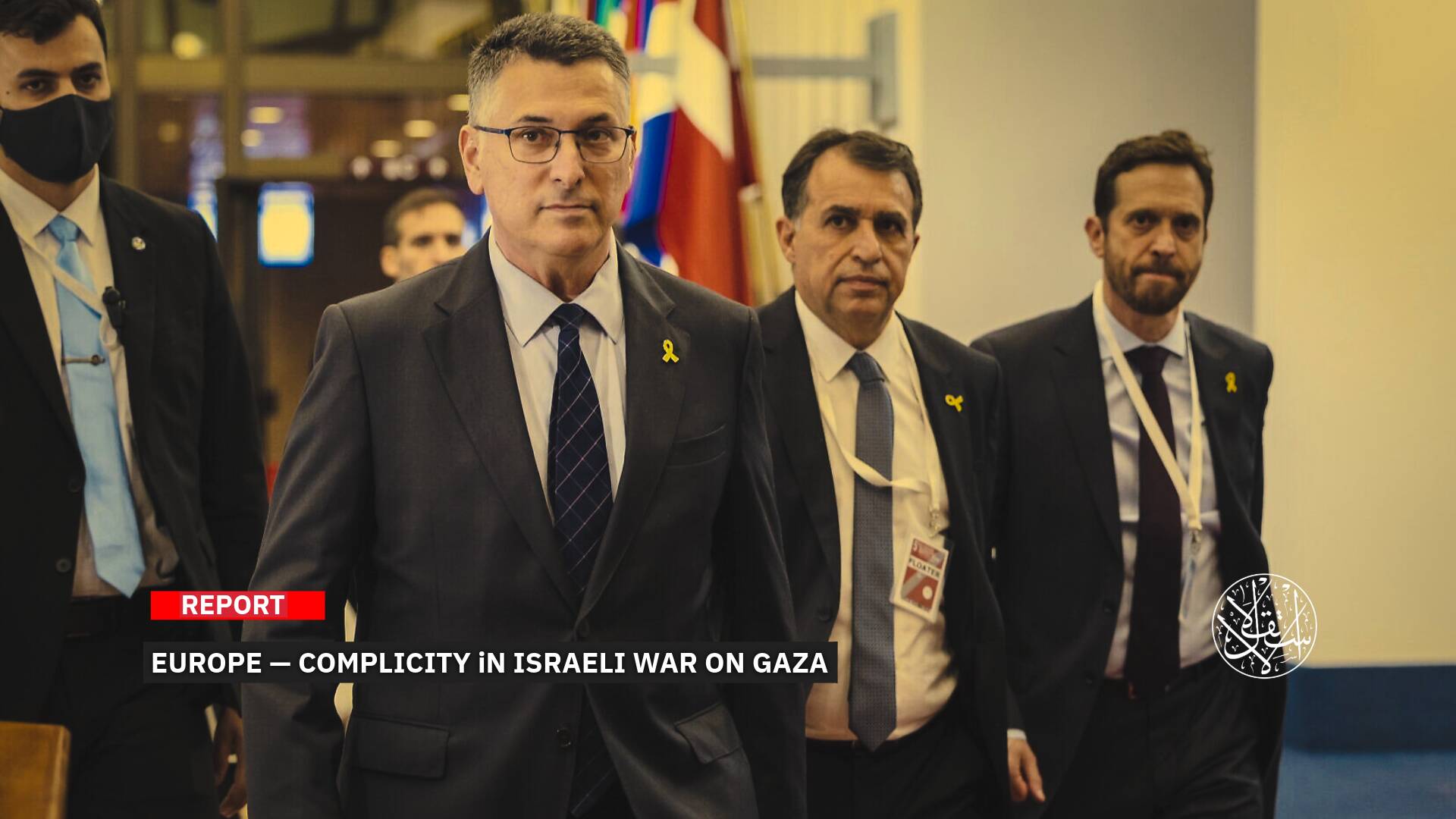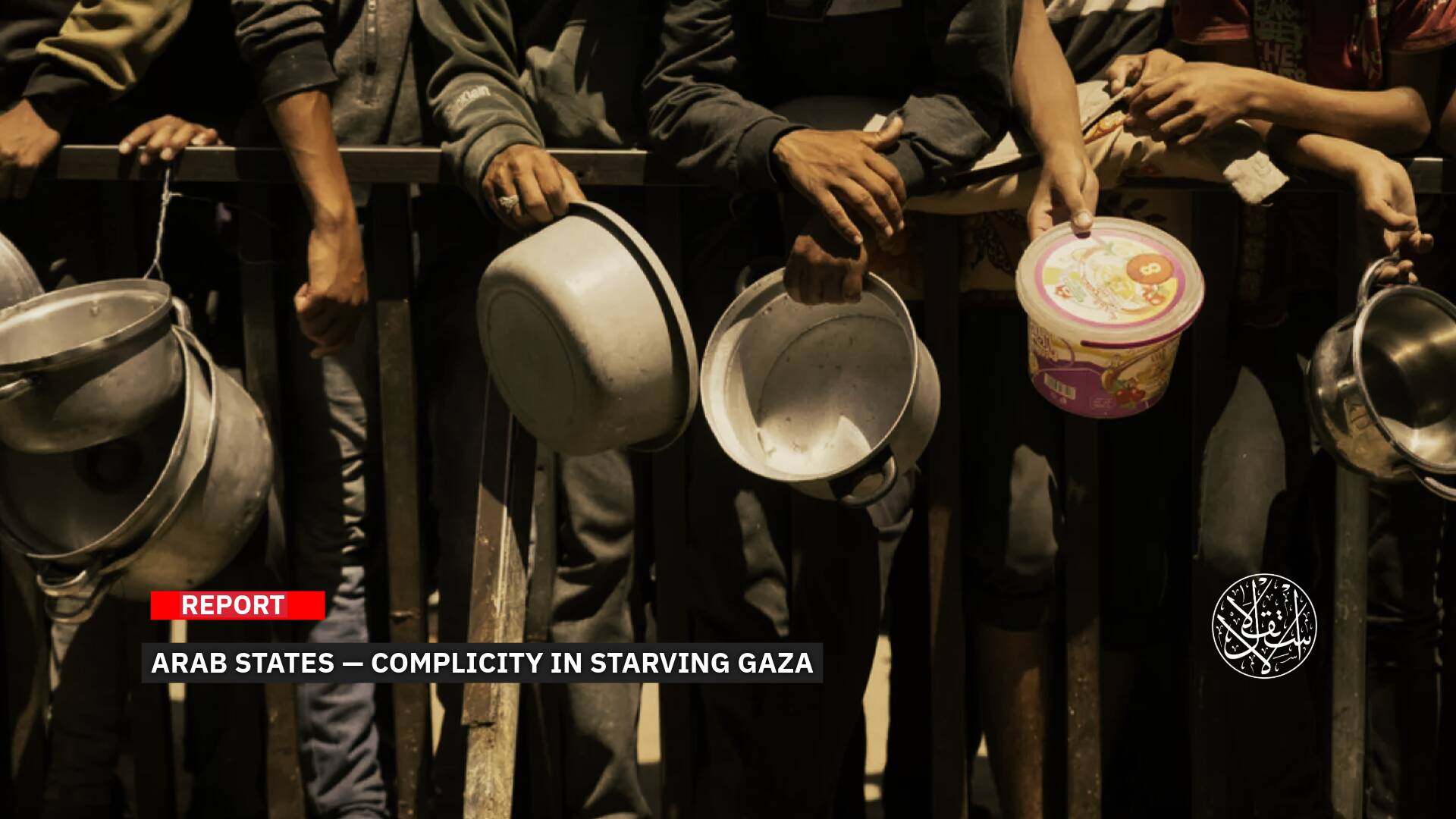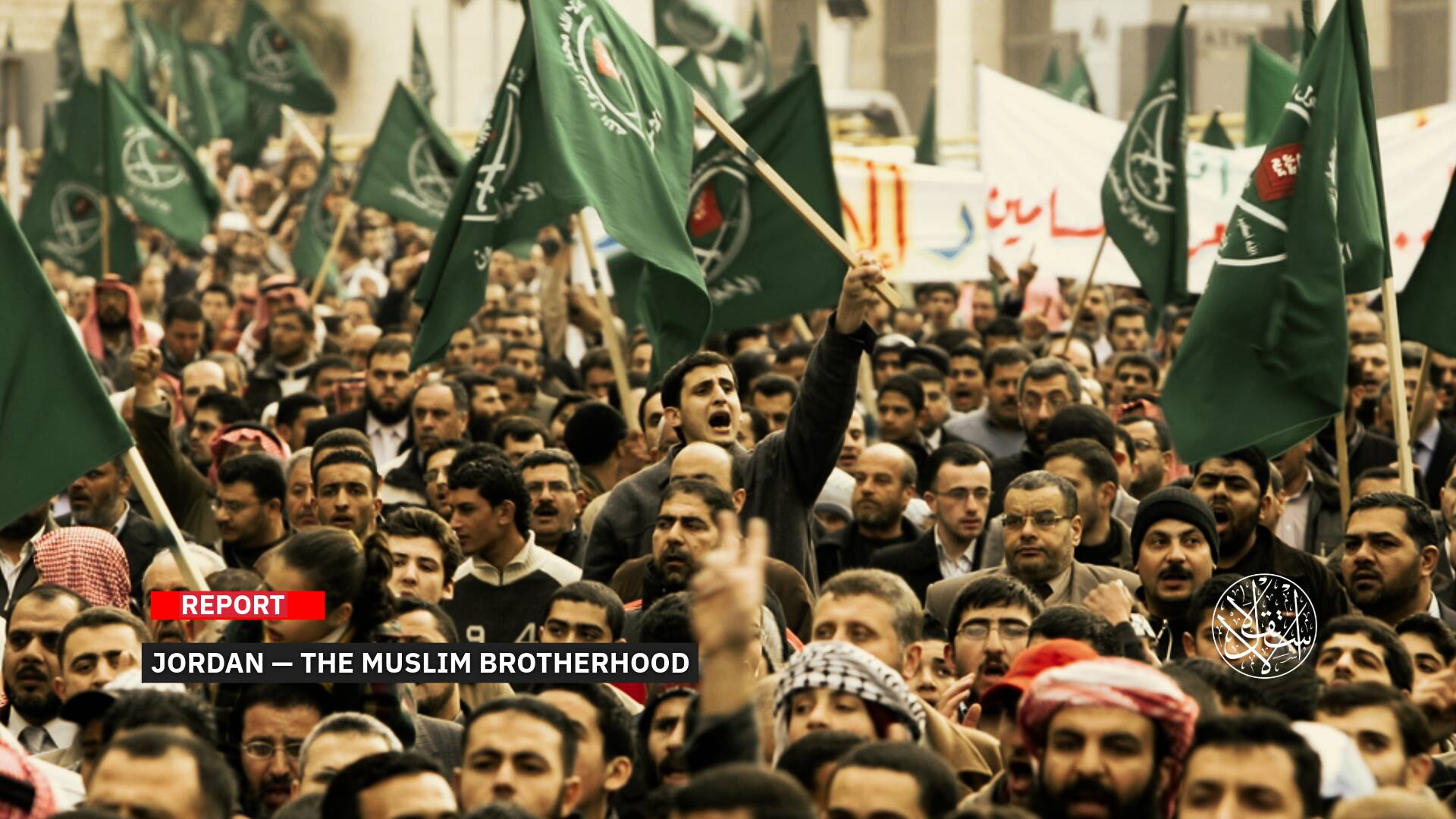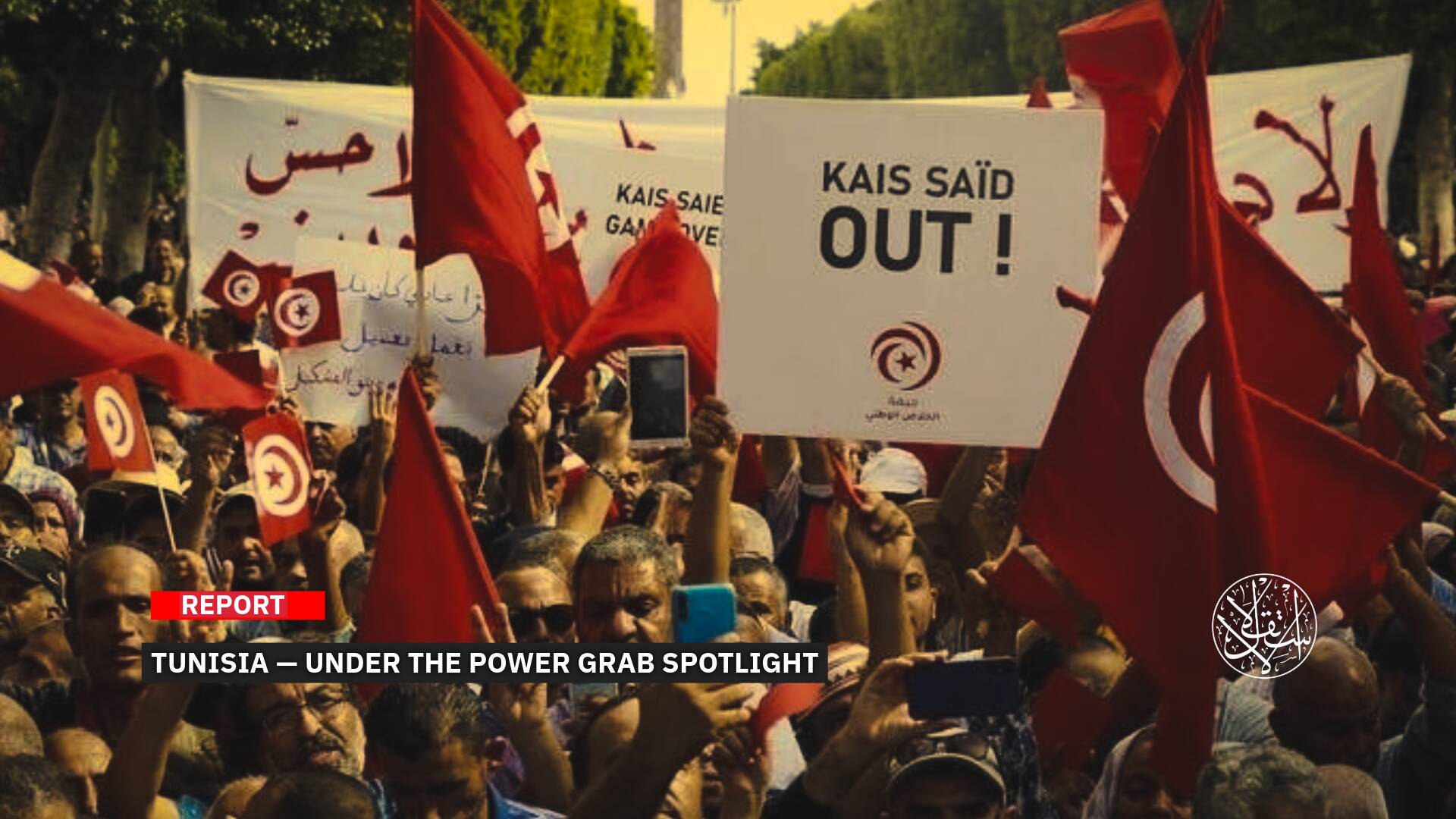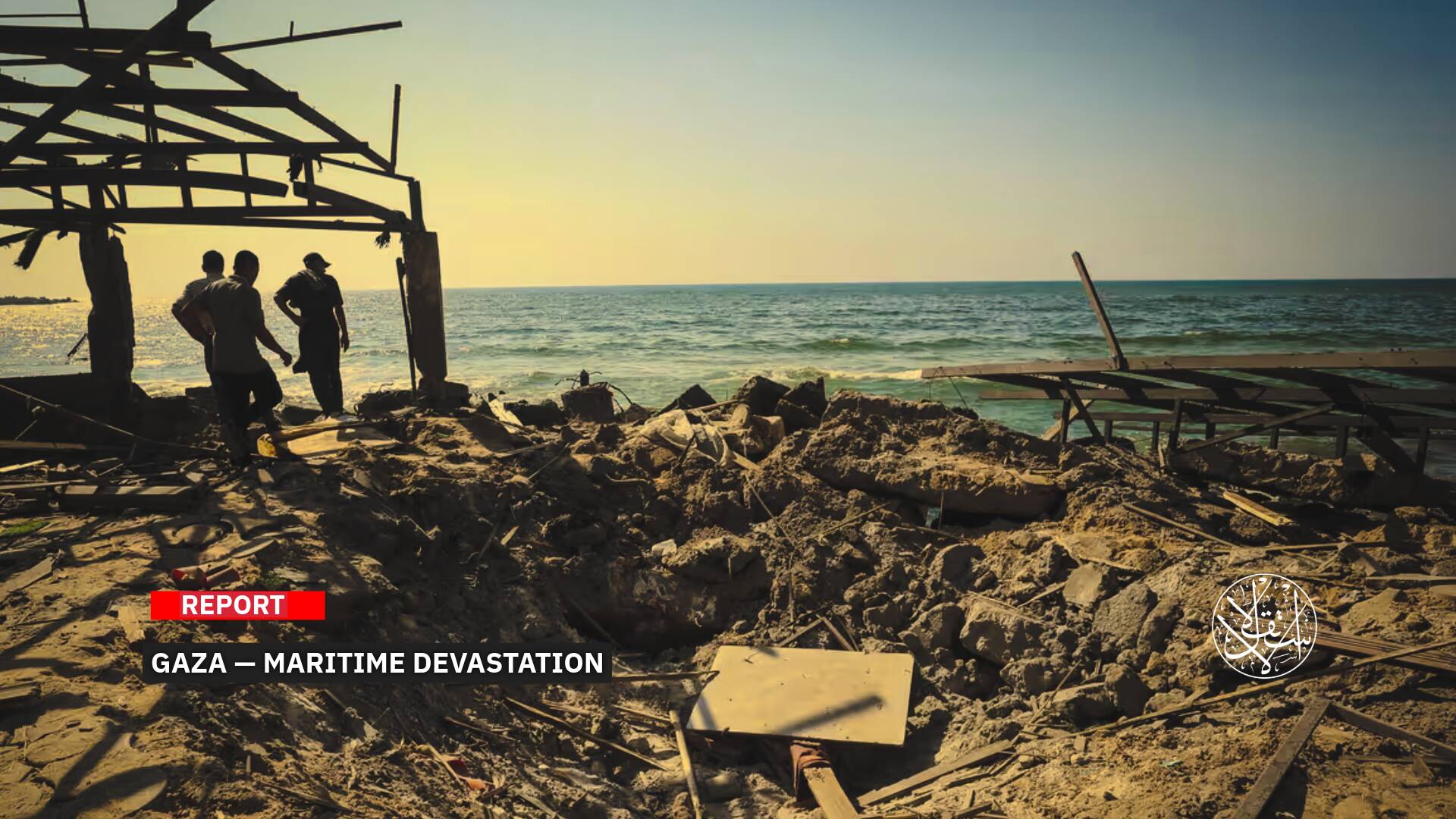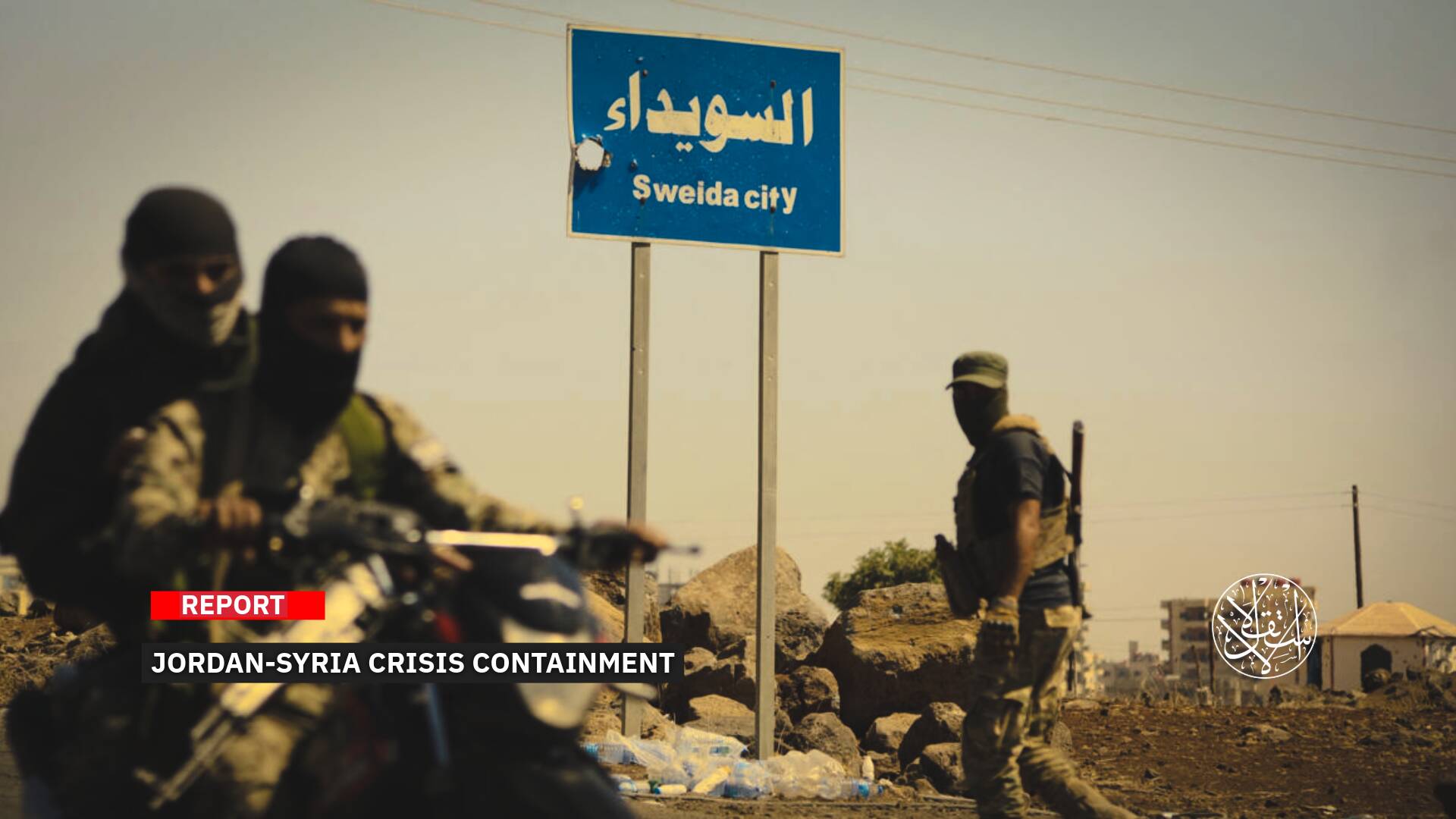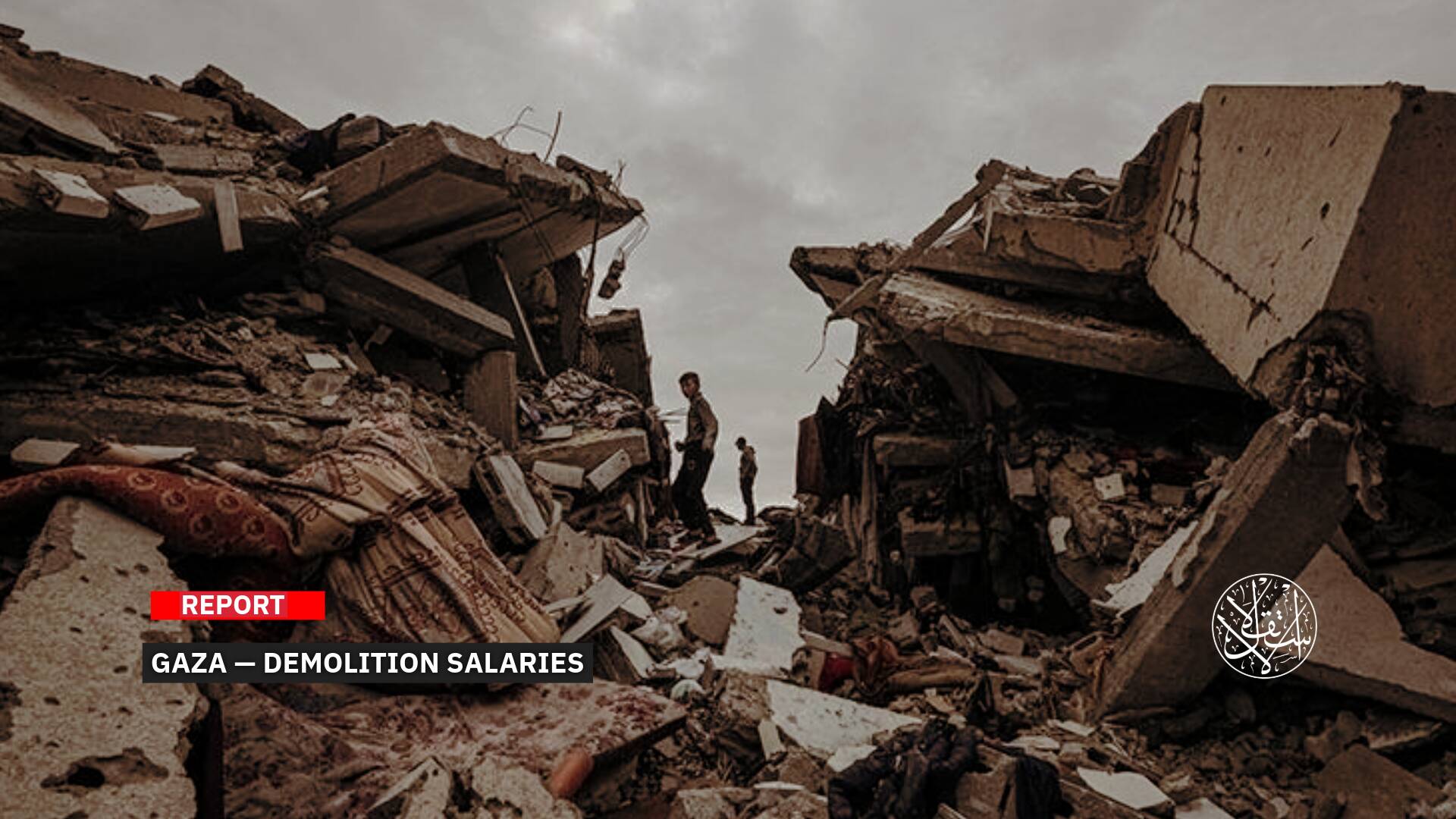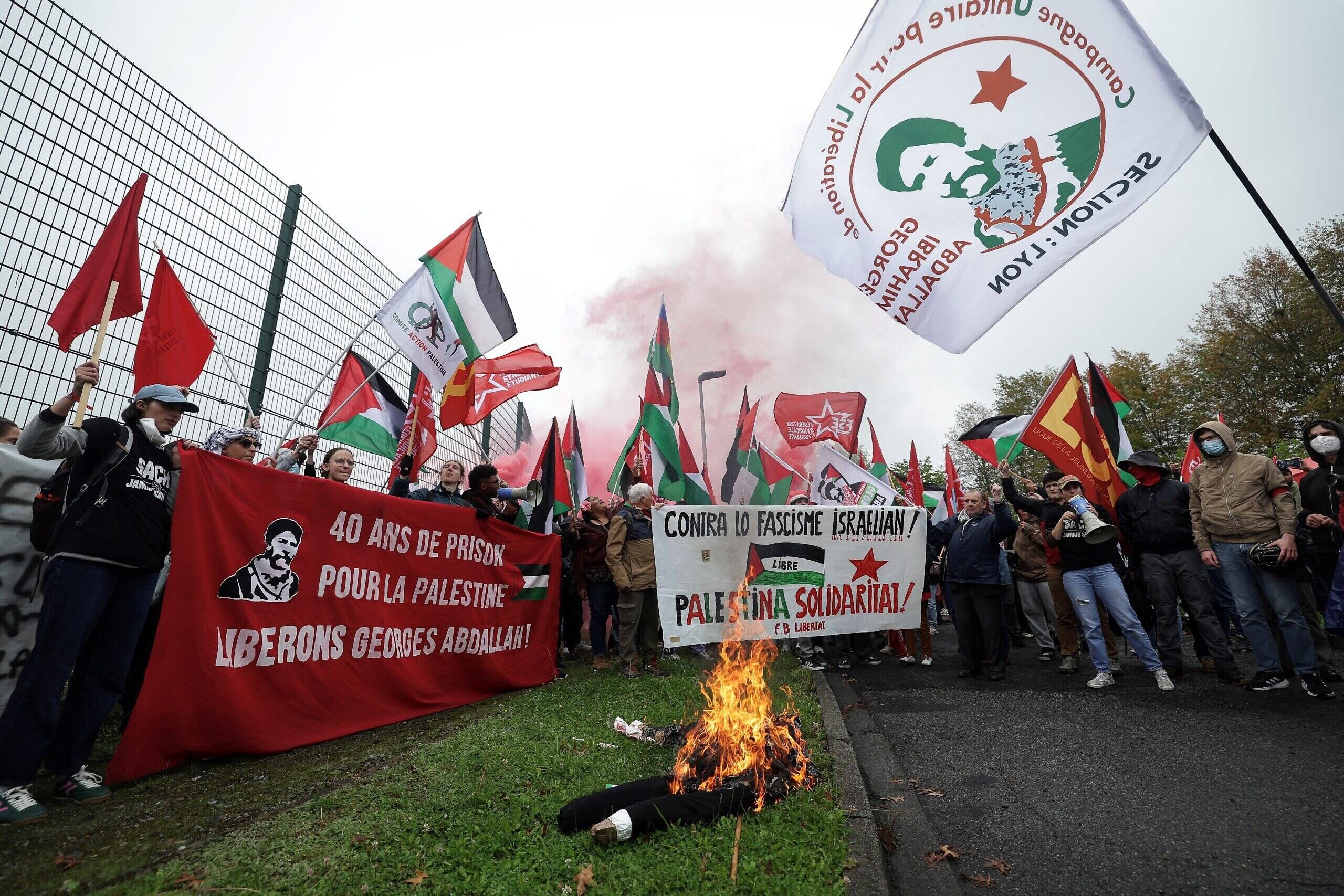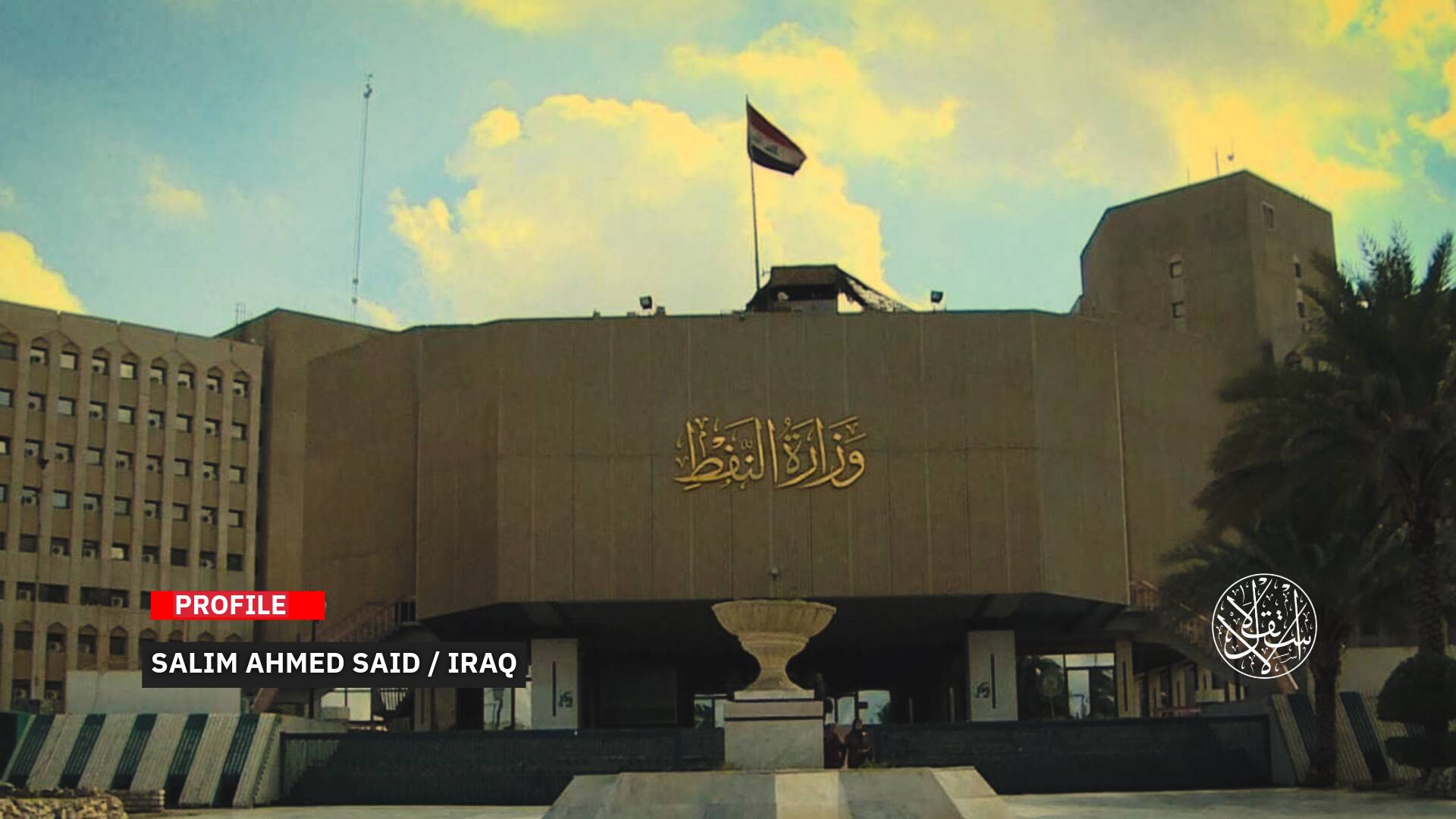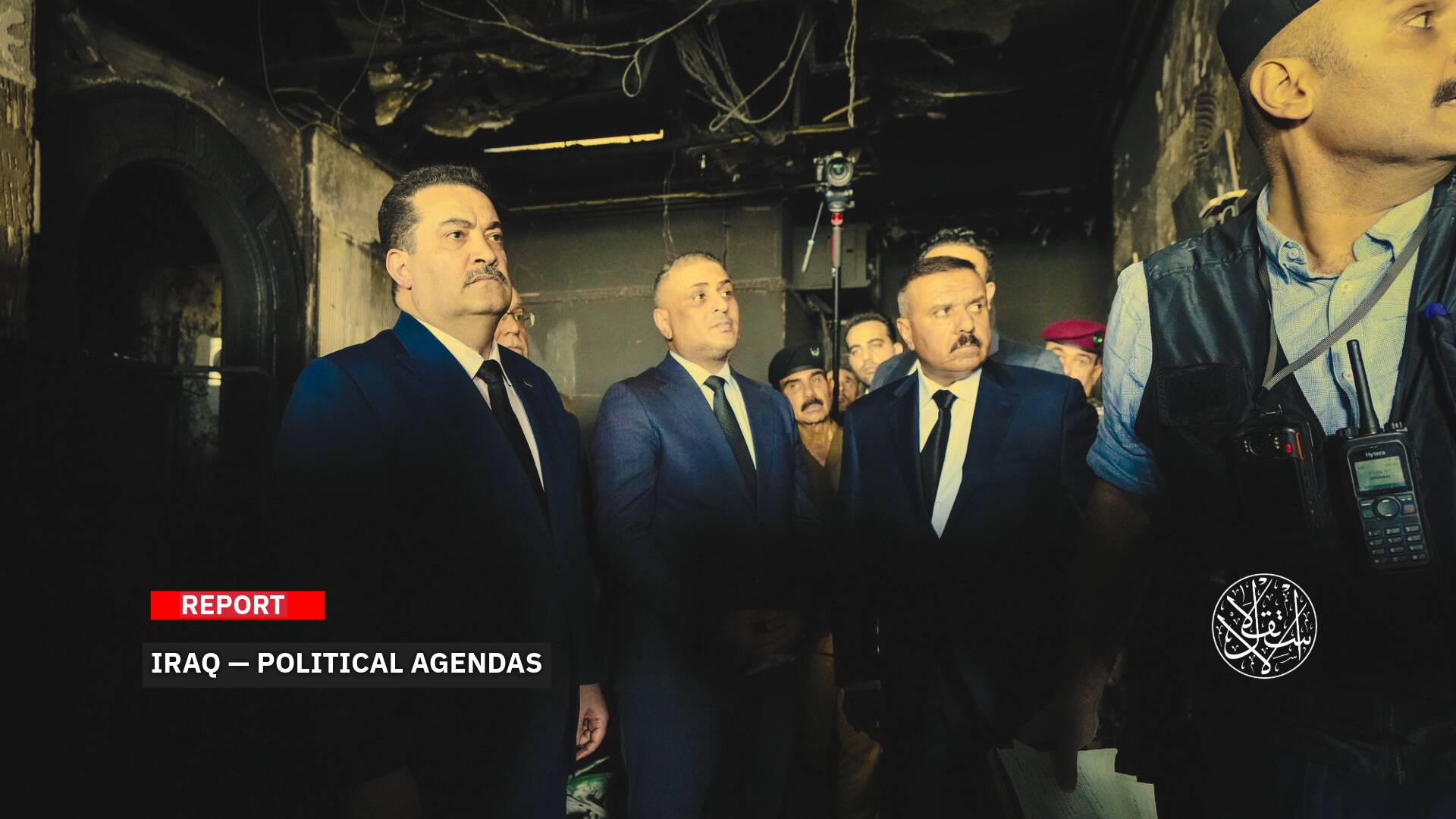Loose Words; Why Does the Orthodox Church in Egypt Fail to Support Palestine?
.jpg)
"We will not enter Jerusalem except with our Muslim brothers," a famous saying made by the late Egyptian Coptic Pope Shenouda III, expressing his rejection of normalization with Israel. He even punished Christians who visited the occupied city of Jerusalem with what is known as excommunication."
However, with Pope Tawadros II, the situation changed and this was evident during the recent Israeli aggression against the people of Palestine, in Jerusalem, the Gaza Strip and many areas of confrontation.
After Cairo's attitude concerning official and religious institutions, in addition to popular anger, the position of the Orthodox Church came "with a conservative delay," which raised questions about the reasons for this decline, especially since the religious and social ties of Egyptian Christians in Jerusalem are deeper than those reservations.
Throughout history, they were different attitudes of the popes of the Egyptian Church towards the Palestinian issue, but most of them reject the Israeli occupation.
This rejection began with Pope Kyrollos VI, the first to refuse to visit Jerusalem, as he announced this in the aftermath of the 1967 setback, after the Holy Land fell into the hands of the Zionist forces, until Pope Shenouda III, who decided to prevent the Church's parishes from traveling to the holy places in the occupied lands.
Late Statement
Despite the Jerusalem confrontations between the Palestinians and the Israeli army began on May 6, 2021 and despite the violence and the dozens of innocent killed, the Egyptian Orthodox Church did not issue any statement or comment until the morning of May 15.
The position of the Church under the leadership of Pope Tawadros II was late comparing to Egyptian institutions. Al-Azhar, under the leadership of Ahmed Al-Tayeb, issued his statement on May 8, which was characterized by " strength condemning the Israeli aggression, as he said: Shameful universal silence. "
The Egyptian Ministry of Foreign Affairs also condemned the Israeli attacks, on May 10, through an angry statement, which included that "every Arab looks with pride at the people of Jerusalem, and what happened to Al-Aqsa Mosque has provoked our feelings."
The Egyptian Church needed 9 days to watch the confrontations and the bombing, in order to announce its statement, which was ‘’ loose phrases such as “The Church calls on all parties be reasonable and discuss through dialogue and negotiation ” without mentioning the word “Israel” as if it has nothing to do with all of that.
Contexts of Normalization
The last position expressed a different policy of the Egyptian papacy for years, which seemed less severe than the previous one in its position on the occupied territories.
Although the Egyptian Church has not yet transgressed the Holy Synod's decision to boycott travel to Jerusalem under the Israeli occupation, issued in 1980, but in May 2015 an "exceptional incident" occurred for the first time in many decades.
This exception was evident when the Coptic Orthodox Pope Tawadros II went to occupied Jerusalem, to participate in the funeral of the Bishop of Jerusalem and the Near East, Anba Abraham.
Participation opened the door to speculation about whether it represented a change in the exlesiastical position refusing to enter Jerusalem, with the possibility of political developments in this regard, especially since there were those who considered the visit a violation of the beliefs and principles of the late Pope Shenouda III, and normalization with the occupation.
It is noteworthy that the Egyptian Church owns Christian endowments in Jerusalem, the most important of which is the Monastery of the Sultan, which is an ancient Coptic Orthodox monastery located within the walls of the Old City, in the Christian Quarter next to St. Helena Church, and the corridor leading from Helena Church to the Wall of the Church of the Holy Sepulcher.
The area of the monastery is about 1,800 square meters, and historically Sultan Al-Nasir Salah Al-Din Al-Ayyubi returned it to the Copts after liberating Jerusalem from the Crusaders (July 4 1187). To the Church of the Holy Sepulcher.
And Israel had taken a decision after the occupation of Al-Quds in 1967 to hand over the monastery and its exclesiastical annexes to the Ethiopian monks.
In early May 2021, Ethiopian monks set up a tent and raised the flag of their country inside Deir al-Sultan, which angered the Egyptian monks residing there.
The Egyptian Church previously resorted to the Israeli courts to prove its entitlement to the monastery, and although the Copts had a court ruling of ownership of the monastery for them, but the Israeli government refuses to implement the ruling, and the monastery is actually managed by the Ethiopian monks, with the presence of Egyptian monks and priests, who hope that the monastery will return to their authority And their own property.
A Position to Forget
The Egyptian journalist Mohamed Youssef, in an interview with Al-Estiklal, considered that the church’s position on the recent events in Palestine was to be “forgotten,” explaining that the reaction of the first Christian religious establishment in Egypt and the Middle East was “not at the level of the event, and it was not expected.”

He explained that "the relationship of the Egyptian Church with Palestine is not based on taking a diplomatic stance. Inside the Palestinian territories hundreds of thousands of Christians belong to the Church of Alexandria, and there are Egyptian Christian endowments in Jerusalem and monasteries directly affiliated with the administration of the Egyptian Church, including the monastery of the Sultan in which the last crisis occurred" With Ethiopian monks. "
Journalist Youssef stressed that "the religious institutions are closer to the people than to the regimes and governments, and they are taking the fateful and popular issues by steps, and this is what happened with Al-Azhar Al-Sharif, by issuing a strong and firm statement more important than the statement if the Ministry of Foreign Affairs’’
He continued: "Indeed, Al-Azhar's statement was direct to the point because it represents more than a billion Muslims around the world regarding their Islamic sanctities and represents the right of the Palestinian people, while the statement of the Egyptian Church was largely conservative, but it has to think again about the Palestinian issue, because these positions are recorded forever , as was the record of Pope Shenouda's national stance against Israel. "
Model for Politicization
The Egyptian researcher in comparative religions, Mahmoud Wahid, told Al-Estiklal that "the evaluation of the modern history of the Egyptian (Orthodox) Church is based on two periods."
The first, "before Pope Shenouda III, that is, the era of Pope Kyrillos VI, when the church at that time was not politicized and was trying to distance itself from politics and partisan clashes, and before that it played a wonderful national role in the 1919 revolution, yet the Christian young people sought to practice politics." By forming groups, far from exploiting the church in that. "
These groups, according to researcher Youssef, are like the Coptic Nation Group, in which Nazeer Jayyid (Pope Shenouda) was an active and essential member.
The second era, since the ascension of Pope Shenouda to the seat of St. Mark's preaching, where the Church entered a new era in which it was distinguished by political effectiveness and clashes even with the presidency of the Republic, as happened in the famous dispute between President Muhammad Anwar Sadat and Pope Shenouda, and the matter reached the first to isolate the second and determine his residence, and that as part of the famous 1981 campaign of arrests.
Youssef added, "Here we are dealing with the Church's position on the issue of Palestine, and Pope Shenouda had stopped the Christian pilgrimage to the Holy Land, and some attributed that the main reason was his disagreement with Sadat, and that the decision was a political spite."
He added, "Nevertheless, the situation continued even after the departure of Sadat and the departure of Pope Shenouda himself, and no change occurred except with the decision of Pope Tawadros II to return the Hajj trips, with his famous visit to Jerusalem."
The Egyptian researcher stressed that "this remarkable development and normalization of the head of the institution was reflected in recent days with the church’s failure to participate in criticizing the Zionist entity, and its response was delayed for days, which explains that there is a dichotomy between the Church and the state’s stance on the Palestine issue, and this is a mistake and it represents a danger danger at the same time".
Youssef concluded his speech by stressing that "official religious institutions must act according to the rules of the state, not according to special rules and personal interests. This has been the practice of the Church for half , and this must be changed."


